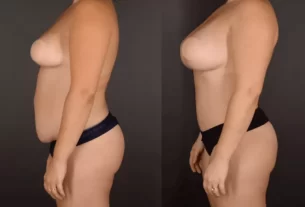Addiction is a condition that is very hard to deal with and that requires a multifaceted treatment approach. When it comes to seeking help, individuals often face a crucial dilemma: whether to seek residential treatment (Inpatient treatment) or outpatient treatment. Both choices have their “pros” and “cons”, and being aware of the difference will help to make the right decision, namely meeting the specific needs and situation that you face.
Differences Between Residential Treatment and Outpatient Treatment
The factors highlighted below will help us discern the difference between residential treatment and outpatient treatment.
- Immersive Therapeutic Environment: The so-called residential treatment, in other words, inpatient therapy, is a treatment under which the person must stay at a certain place, called the facility, for a particular period. This cozy space is a space that provides an immersive setting by introducing a controlled and comforting atmosphere, thus taking the individual away from daily events and distractions. Residential treatment provides its patients with round-the-clock care, a team of professionals, a myriad of therapeutic treatments, including behaviors and holistic methods, as well as individual and group counseling. On the other hand, outpatient treatment does not hold individuals in a specific facility and hence does not offer an immersive atmosphere.
- Flexibility: In contrast with residential treatment, outpatient treatment enables people to continue with their normal lives while still receiving therapy. Outpatient programs enable better flexibility and may be a good choice for those who have lots of work-related, home-related, or school-related obligations and whose addiction is not severe.
- Addressing Co-occurring Disorders: Both residential and inpatient rehabs treat comorbid mental disorders such as – depression, anxiety, and trauma together with addiction disorders. Being in residential treatment, however, is more appropriate for patients with dual diagnosis.
- Family Involvement and Support: Family involvement and family support are no less important than the medical treatment of the patient in the addiction recovery process. Family therapy along with educational programs are part and parcel of the residential treatment programs where the resolution of family issues is ensured and besides that, family members are trained and equipped with the recovery resources they need to support the individual. Outpatient treatment also includes the family members in one way or the other since the patient has to return home in the evening. However, some treatment centers may require family members to tag along with the patient at the rehab for family therapy sessions. It is up to the rehab itself to decide which type of family involvement will be ideal and at what level it will be offered.
Seek Quality Addiction Help From The Best Addiction Treatment Center in Houston, TX.
Are you or someone close to you battling a drug or mental health problem? You aren’t alone in this and don’t shy away from seeking help. Skyward Treatment Center offers a unique and personalized approach to recovery. Our current residential facilities foster a stable atmosphere where individuals can exclusively work on their recovery process without being exposed to distractions. Our trained team individually puts together treatment plans that are made to fit specific requirements. By utilizing various evidence-based therapies and holistic methods, we focus on all areas of recovery to make sure we induce a long-lasting change. So, what are you waiting for? Take the first step of the journey towards a brighter tomorrow by visiting Skyward Treatment Center today!





